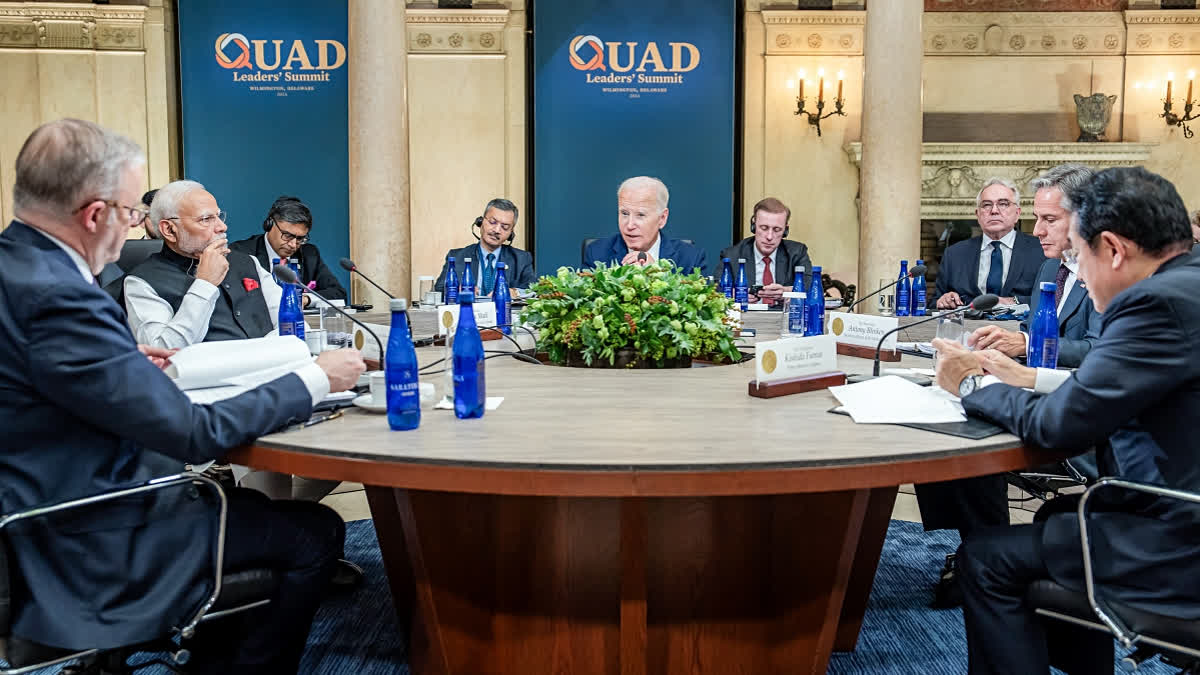New Delhi:India and other Quad member nations on Tuesday reaffirmed the grouping's steadfast commitment to work towards a free, open and peaceful Indo-Pacific amid China's increasing military muscle-flexing in the region. The foreign ministers of the member nations of the grouping made the pledge in a joint statement commemorating the 20th anniversary of "Quad cooperation".
India, the US, Australia and Japan came together 20 years ago to extend assistance in response to the 2004 Indian Ocean earthquake and tsunami, and that coalition subsequently took the form of the Quad. In the last few years, the Quad has rolled out a number of initiatives addressing some of the most pressing needs and challenges of the Indo-Pacific region, including in areas of maritime security, infrastructure and connectivity.
India is scheduled to host the next Quad Summit which is likely to take place in the second half of 2025. The foreign ministers of the four nations said the Quad will work together in responding to the future needs of the Indo-Pacific.
"As four partners, we share a vision of a free and open Indo-Pacific that is peaceful, stable and prosperous, underpinned by effective regional institutions," the joint statement said. The Quad foreign ministers also talked about the centrality of the 10-nation grouping Association of Southeast Asian Nations (ASEAN) in the Indo-Pacific.
"We reaffirm our unwavering support for ASEAN's centrality and unity as well as mainstreaming and implementation of the ASEAN Outlook on the Indo-Pacific," the ministers said. "We respect Pacific-led regional architecture, foremost the Pacific Islands Forum. We are also steadfast in our support for the Indian Ocean Rim Association, the region's premier organisation," they said.
The Quad foreign ministers also referred to the Indian Ocean earthquake and tsunami and how the four countries came together to respond to the challenges. "The tsunami was one of the worst disasters in history, claiming the lives of nearly a quarter million people and displacing 1.7 million across 14 countries," they said.
